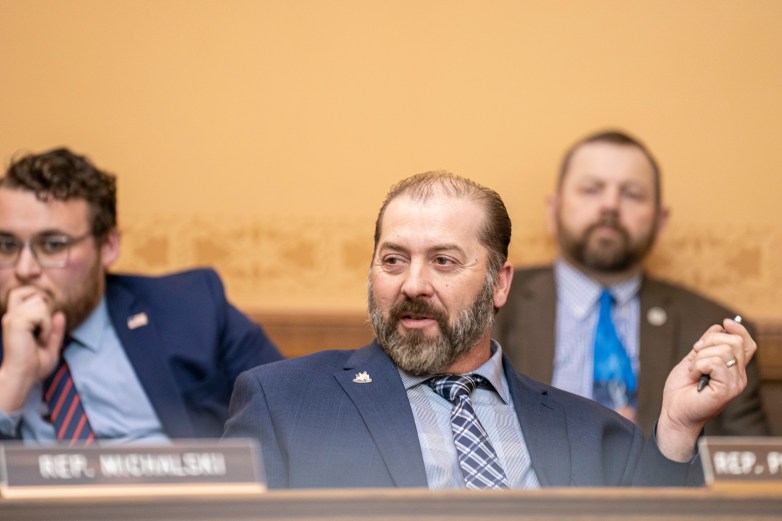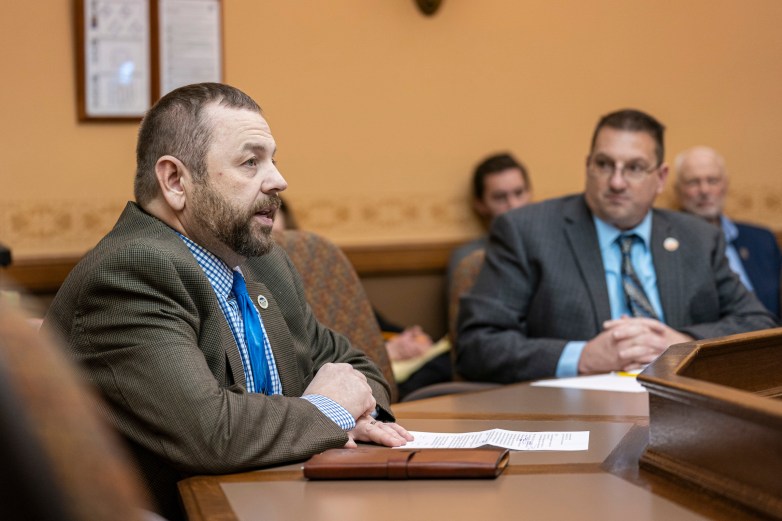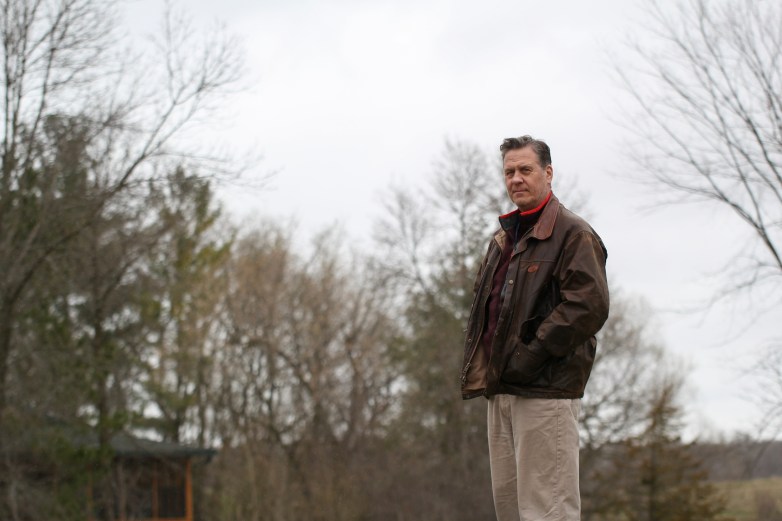Click here to read highlights from the story
- A Republican bill would bar local governments from implementing stricter rules than the state already imposes regarding animal welfare, the administration of medications and vaccinations and how animals are used at or after they leave a farm or facility.
- Proponents say the measure is needed to prevent restrictive “laws enacted in other states finding their way to Wisconsin,” but they haven’t cited specific local ordinances they are targeting within the state.
- Critics worry the measure will erode local control beyond animal welfare and health issues.
Republican state lawmakers are proposing to restrict local authority to regulate Wisconsin farms and other animal facilities in agriculturally zoned areas.
Assembly Bill 957, referred to as the “Protect our Farms Act,” would block cities, villages, towns and counties from implementing stricter rules than the state already imposes regarding animal welfare, the administration of medications and vaccinations, and the ways animals are used at or after they leave a farm or facility.
Proponents say the measure is needed to prevent restrictive “laws enacted in other states finding their way to Wisconsin” and “avoid putting Wisconsin agriculture at a competitive disadvantage.”

“Farmers are the hardest-working individuals in our state and never complain,” testified bill co-author Rep. Treig Pronschinske, R-Mondovi, at a Wednesday hearing of the Assembly Committee on Local Government. “Enacting frivolous laws that hurt our farmers is simply cruel.”
Sen. Romaine Quinn, R-Cameron, introduced an identical bill in the Wisconsin Senate. He did not respond to multiple requests for comment.
But critics worry the measure will erode local control beyond animal welfare and health issues. The bill’s skeptics include residents and property owners in northwest Wisconsin who support local regulations to limit how large livestock farms affect quality of life. Some call the bill a Pandora’s box that might unravel any safeguards against potential health, economic and environmental harms caused by such farms, known as concentrated animal feeding operations, or CAFOs.
“When you're trying to kind of sneak in under the wire, not raise a lot of red flags, it’s put in place piecemeal,” said attorney Andy Marshall, a Trade Lake property owner who helped draft a model CAFO ordinance adopted by several Wisconsin towns.
Local governments under the legislation also could not regulate what animal species facilities could raise, nor could they enforce existing rules that conflict with any of the bill’s provisions — unless the regulated activity presented a “substantial threat to public health or safety.”
The bill’s co-sponsorship memo cites a controversial California law that prohibits the sale of pork, eggs and veal that is produced with insufficient living space as the type of regulation it seeks to preclude, but the memo does not mention any existing local rules in Wisconsin that the bill aims to invalidate.
When asked at the bill hearing if he was aware of any local ordinances that might be invalidated, Chad Zuleger, director of government affairs at the Dairy Business Association, also could not point to any in Wisconsin.
A handful of other GOP legislators have registered support for the measure, as have the Wisconsin Biomedical Research Coalition, Wisconsin Corn Growers Association and Wisconsin Bear Hunters Association. Other supporters include the Wisconsin Farm Bureau Federation, Wisconsin Association of Meat Processors and Midwest Food Products Association Inc.
“Piecemealing regulations creates uncertainty and instability in farmers, especially when their farms cross multiple municipalities’ boundaries and they are forced to comply with inconsistent regulations,” said AV Roth, who owns a 3,000-sow farm in Crawford County and sits on the Wisconsin Pork Association board.

At the hearing, he attributed his decision to delay expanding his swine herd to the uncertainty caused by the California law and said he fears Wisconsin municipalities could place similarly onerous requirements on his CAFO.
Animal welfare groups, including the Humane Society of the United States and Animal Wellness Action, oppose the measure. The latter organization said the proposal “serves no purpose other than to give cover to unscrupulous actors such as puppy mills.”
Adam Voskuil, an attorney with the nonprofit law center Midwest Environmental Advocates, called the measure “ominous,” but “relatively limited in scope.”
He predicted that litigious industry groups might cite the legislation in threatening to sue municipalities that attempt to regulate farming more broadly.
But several skeptics remain concerned it would serve as more than legal bluster, establishing precedent that crushes the handful of existing CAFO operations ordinances in Wisconsin, which have already borne litigation and threats.

Trade Lake, one of five northwest Wisconsin towns that passed an ordinance, requires new farms of 500 animal units or greater — 1,250 swine or 357 dairy cows — to apply for a permit that regulates waste management, animal health and mortality, water use and air pollution. Town leaders adopted the rules after the community confronted a developer’s proposal to construct within the town what would be Wisconsin’s largest pig breeding farm.
The nonprofit Wisconsin Watch (www.WisconsinWatch.org) collaborates with WPR, PBS Wisconsin, other news media and the University of Wisconsin-Madison School of Journalism and Mass Communication. All works created, published, posted or disseminated by Wisconsin Watch do not necessarily reflect the views or opinions of UW-Madison or any of its affiliates.
This article first appeared on Wisconsin Watch and is republished here under a Creative Commons license.![]()



